In the fall semester of 2024, the Mittal Institute started hosting Climate Dialogues, a series of closed-door events centering South Asia in the climate change conversation. The talks feature Harvard faculty speakers from across the University in an informal environment that includes a dinner. They enable affiliates of the Mittal Institute Climate Platform and other scholars to engage in interdisciplinary dialogues and forge connections and research collaborations.
Climate Dialogues are part of the Mittal Institute Climate Platform, a major climate change initiative launched in 2023 that focuses on South Asia and includes research projects, training programs, and events.
The three inaugural gatherings in the fall semester of 2024 discussed the impact of heat on informal workers, featuring preliminary findings of the Mittal Institute’s Community HATS study; how cities can effectively determine climate adaptation policies; and what today’s health advocates can learn from the long history of air pollution in South Asia.
Learn more about each Climate Dialogue below:
October 3, 2024: The Impact of Heat on Informal Workers
Speakers: Satchit Balsari (Associate Professor of Emergency Medicine at Harvard Medical School and Associate Professor in the Department of Global Health and Population at the Harvard T.H. Chan School of Public Health), Caroline Buckee (Professor of Epidemiology at the Harvard T.H. Chan School of Public Health)
Dr. Balsari and Dr. Buckee discussed the Community HATS study, a research project in collaboration with the Self Employed Women’s Association (SEWA) funded by the Mittal Institute that aims to understand the effects of extreme heat on informal workers and vulnerable populations. Balsari and Buckee presented findings from their pilot study that followed 90 SEWA members for up to four months to examine heat exposure dynamics at work and in homes.
Preliminary findings reveal how participants; homes and workstations heat up during the day and remain hot overnight, resulting in sustained exposure. While monsoons provide temporary relief with cooler temperatures, they also bring high humidity, exacerbating stress. Heat exposure is particularly taxing for women working in both indoor and outdoor trades, such as street vending, saltpan labor, and farming, where prolonged activity amplifies health risks.
This initiative aims to scale up to include 720–1,000 SEWA members across multiple trades with varying activity levels and extend the follow-up to 12+ months. Dr. Balsari and Dr. Buckee emphasized the importance of building a community research platform to evaluate adaptive strategies in real-world settings. With over 1.1 billion people globally living in urban slums or informal housing, they underscored the need for targeted, participatory approaches to develop effective, context-specific solutions for mitigating heat-related health risks in rapidly urbanizing regions.
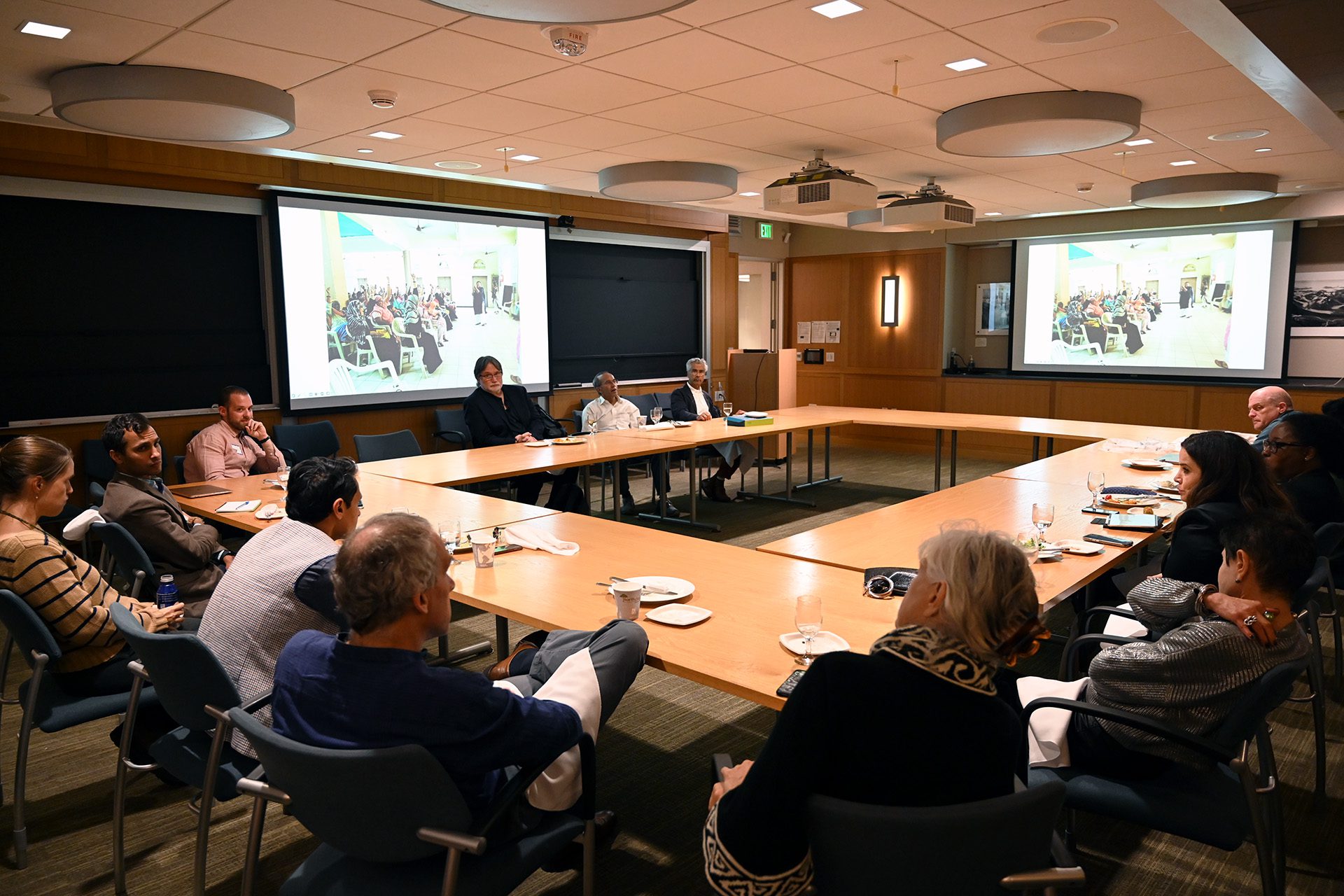
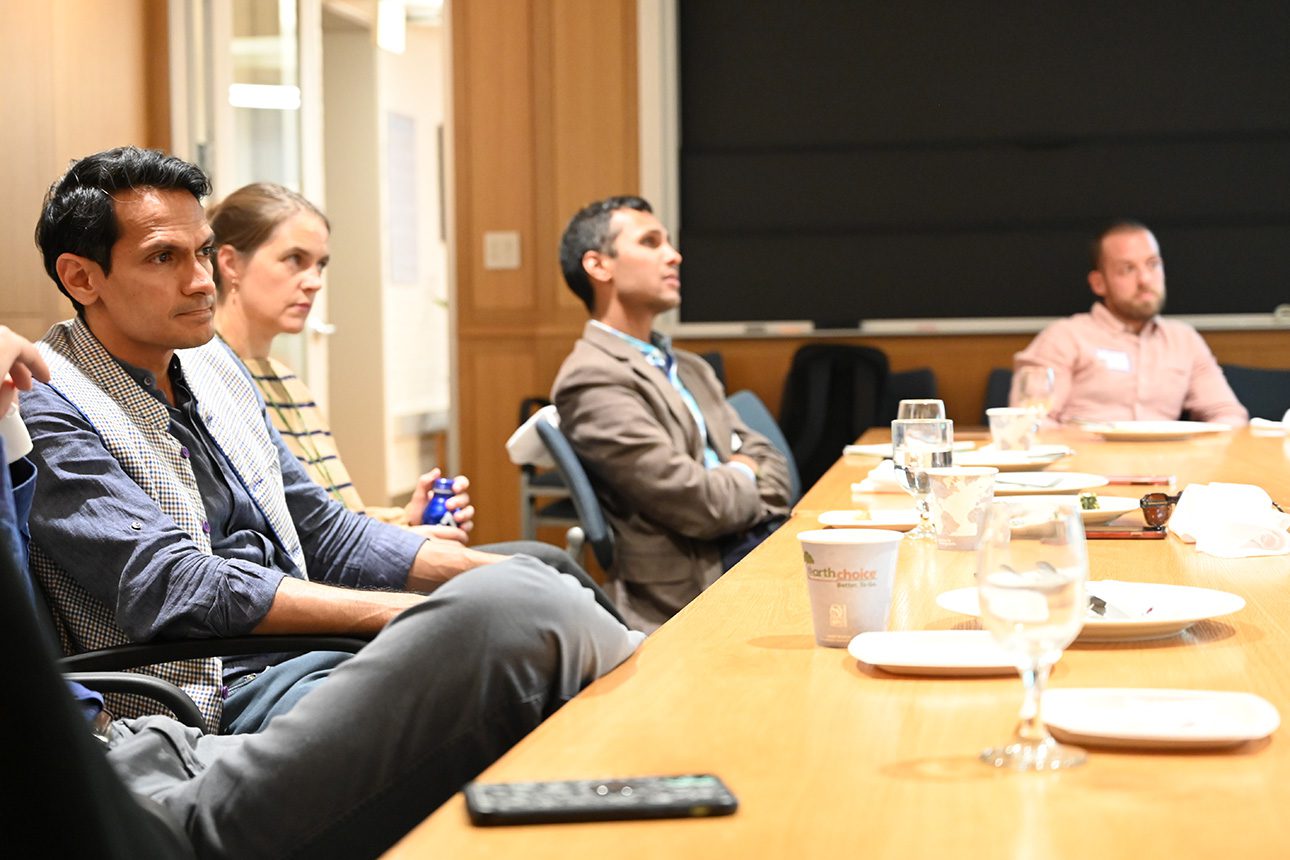
November 14, 2024: Climate Change, Cities, and Decision-Making
Speakers: Edward Glaeser (Fred and Eleanor Glimp Professor of Economics at Harvard University), Ankur Pandya (Associate Professor of Health Decision Science in the Department of Health Policy and Management at Harvard T.H. Chan School of Public Health)
Ed Glaeser explored the need for climate change adaptation in developing world cities, which are hot, low-lying, and resource limited. He highlighted urbanization as partial protection against agricultural climate shocks but noted that cities remained vulnerable to heat deaths and floods. Adaptation scenarios imagined for cities include interventions moving populations or protecting places through infrastructure such as sea walls, greenery, and better drainage systems. Glaeser stressed the importance of understanding risks, effective interventions, human behavior, and the capacity to implement solutions. He drew insights from his research on infrastructure, procurement processes, and behavioral enforcement, emphasizing that public capacity—resources and efficacy—was central to addressing these challenges.
Ankur Pandya introduced decision science as a systematic, quantitative approach to making decisions under uncertainty, particularly in health policy and climate-related contexts. He discussed the key components: defining objectives, understanding constraints, identifying strategies, predicting outcomes, and comparing results to guide decisions. Disease simulation models, for example, helped evaluate policy outcomes that were difficult to test through clinical trials. These tools projected individual health and cost outcomes under different scenarios, enabling informed decision-making. Pandya highlighted how this framework applied to reducing illness and emissions, providing a critical lens for tackling complex climate and health challenges through data- driven methods.
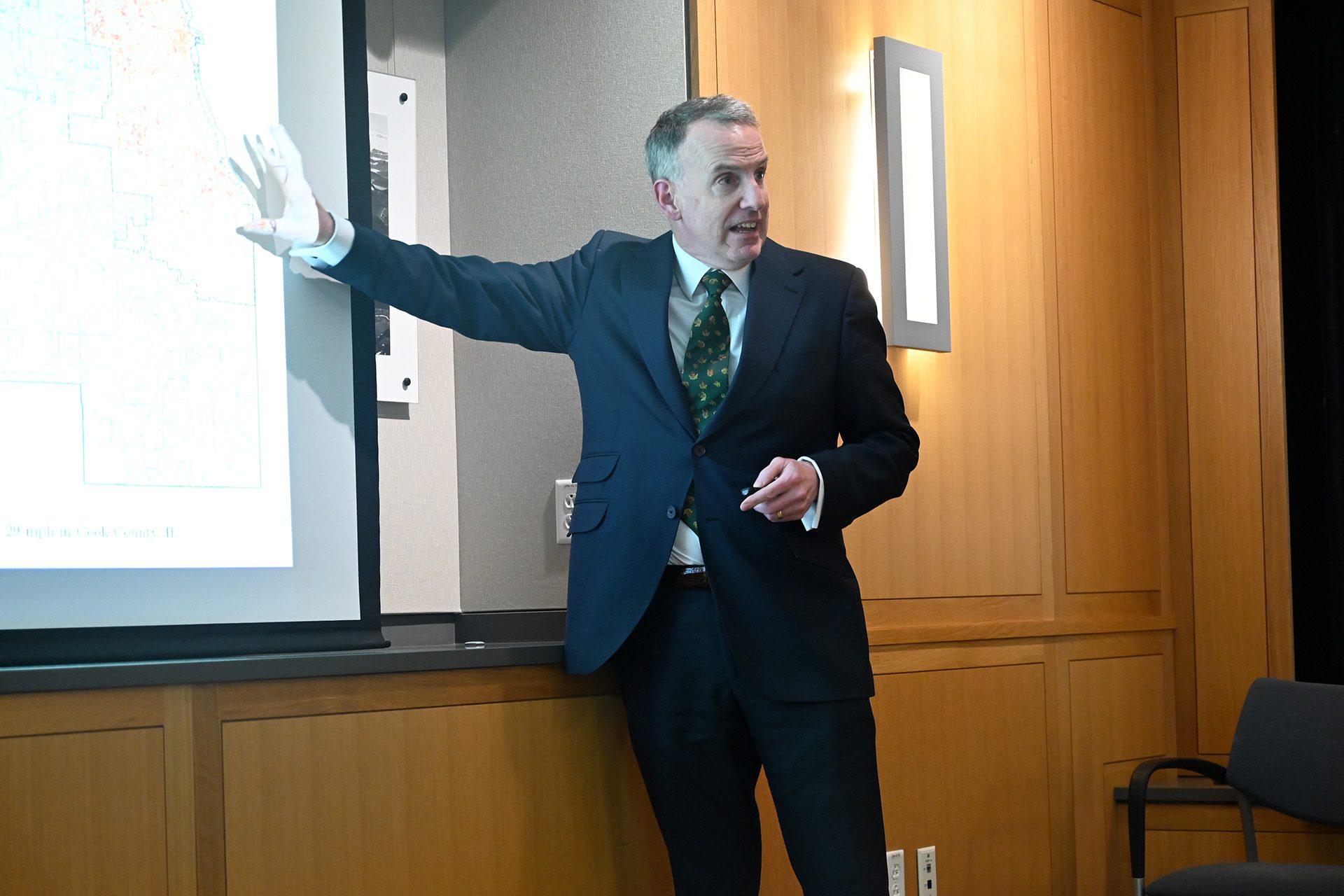
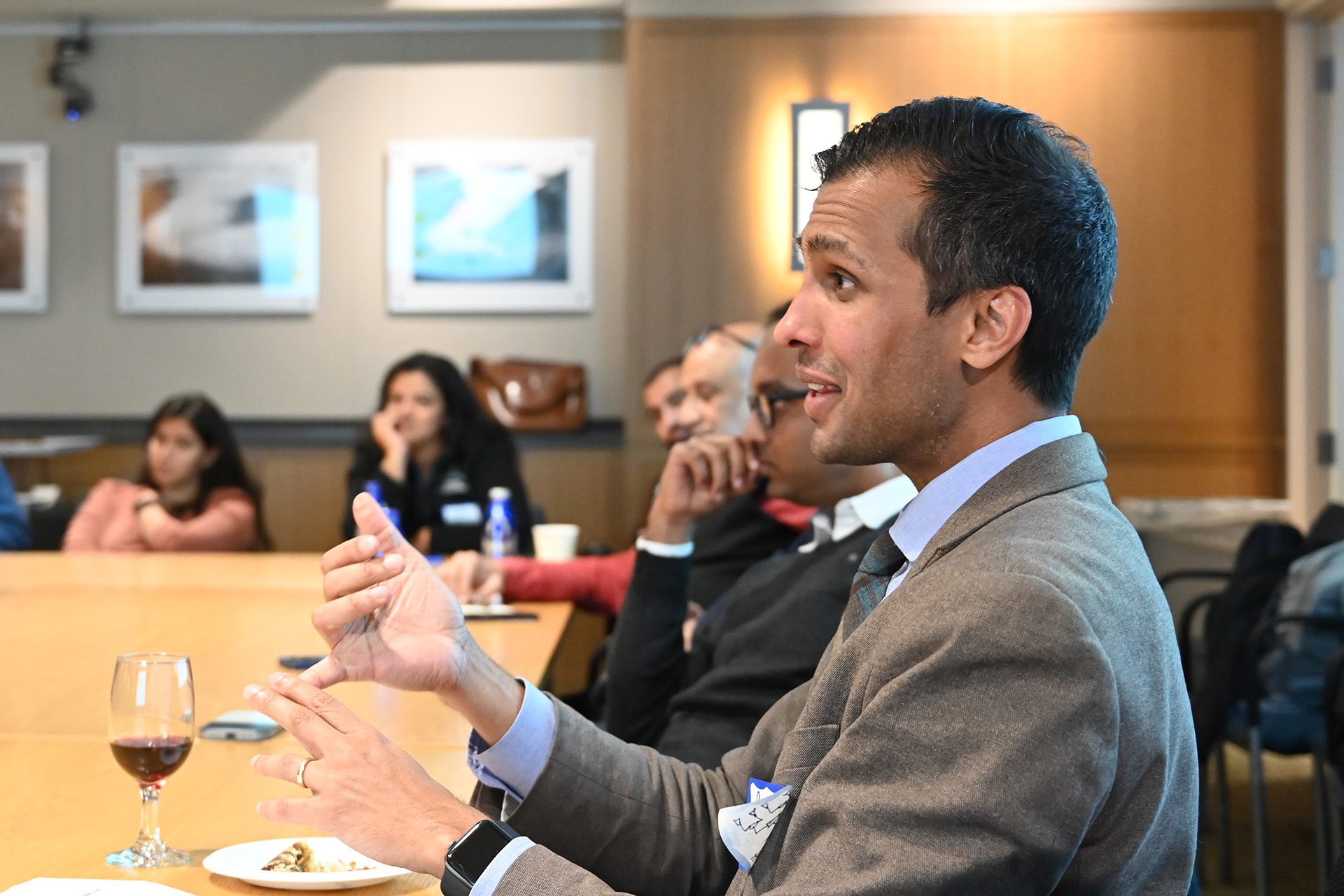
December 5, 2024: The Air Pollution Crisis in South Asia: Can History Help?
Speaker: David S Jones (A. Bernard Ackerman Professor of the Culture of Medicine at Harvard University)
Pollution levels in North India reached unprecedented heights in November 2024. In light of this, Jones provided a historical perspective on the air pollution crisis in South Asia’s cities. Outsiders often see air pollution as a new problem. Delhi’s air pollution, for instance, has been a fixture of international news only for the past decade. The problem, however, has deeper roots. Outrage about air pollution emerged as soon as the British Empire introduced coal-powered industrialization into Calcutta and Bombay in the mid-19th century. Smoke Nuisance Commissions in both cities repeatedly declared victory in the early 20th century. Air pollution, however, outlasted the colonial administration and intensified after independence in 1947. Researchers worked to develop the local knowledge and technology they needed to control the problem. Clean air advocates faced a constantly shifting constellation of pollution sources (e.g., textile mills, atomic energy, petrochemical plants, road traffic, etc.). They also faced governments—local, state, and national—that were ambivalent, at best, about tackling the problem. Jones addressed how environmental health advocates today, who still face both of these problems, can find lessons (or at least solace) in the experiences of their predecessors.
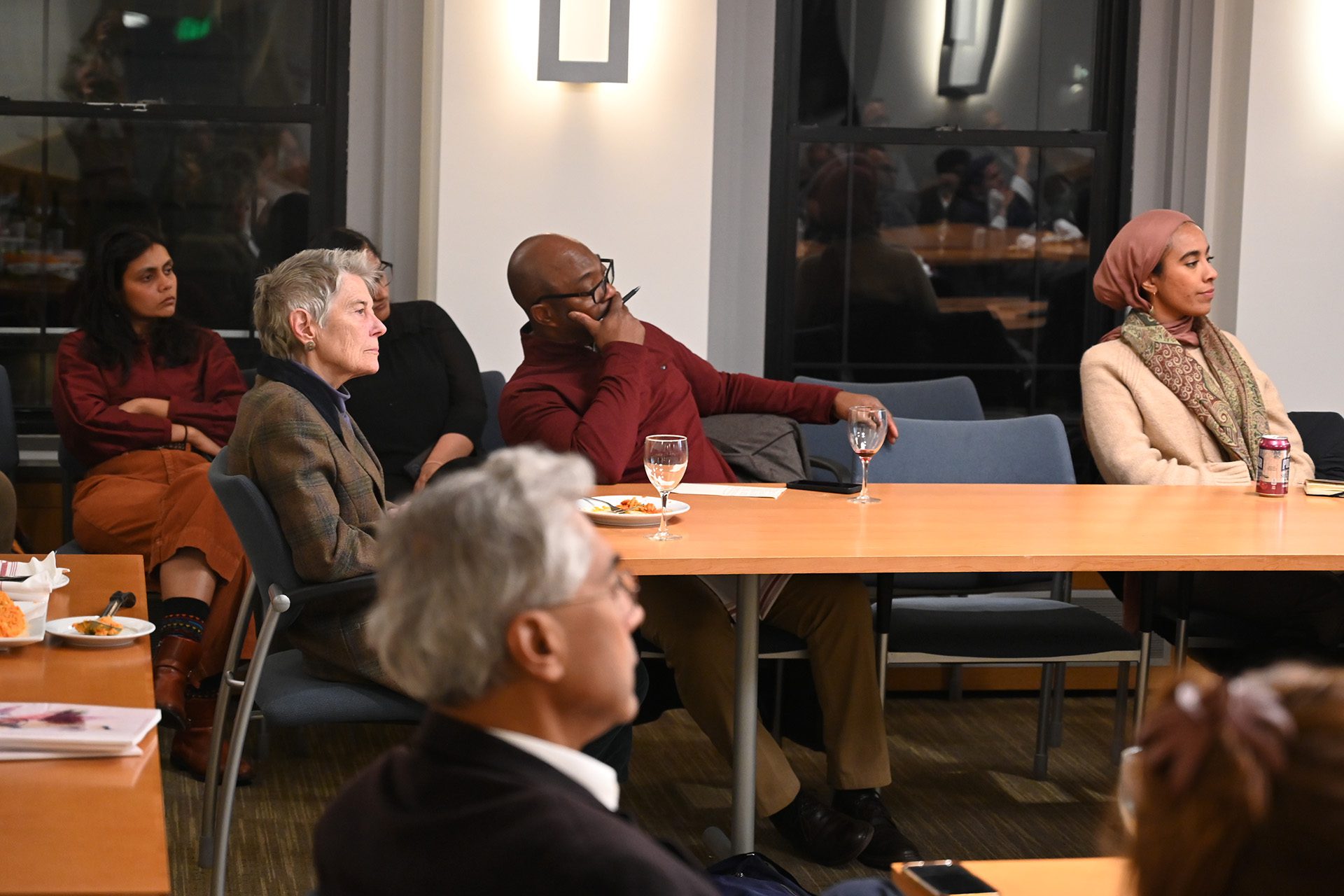
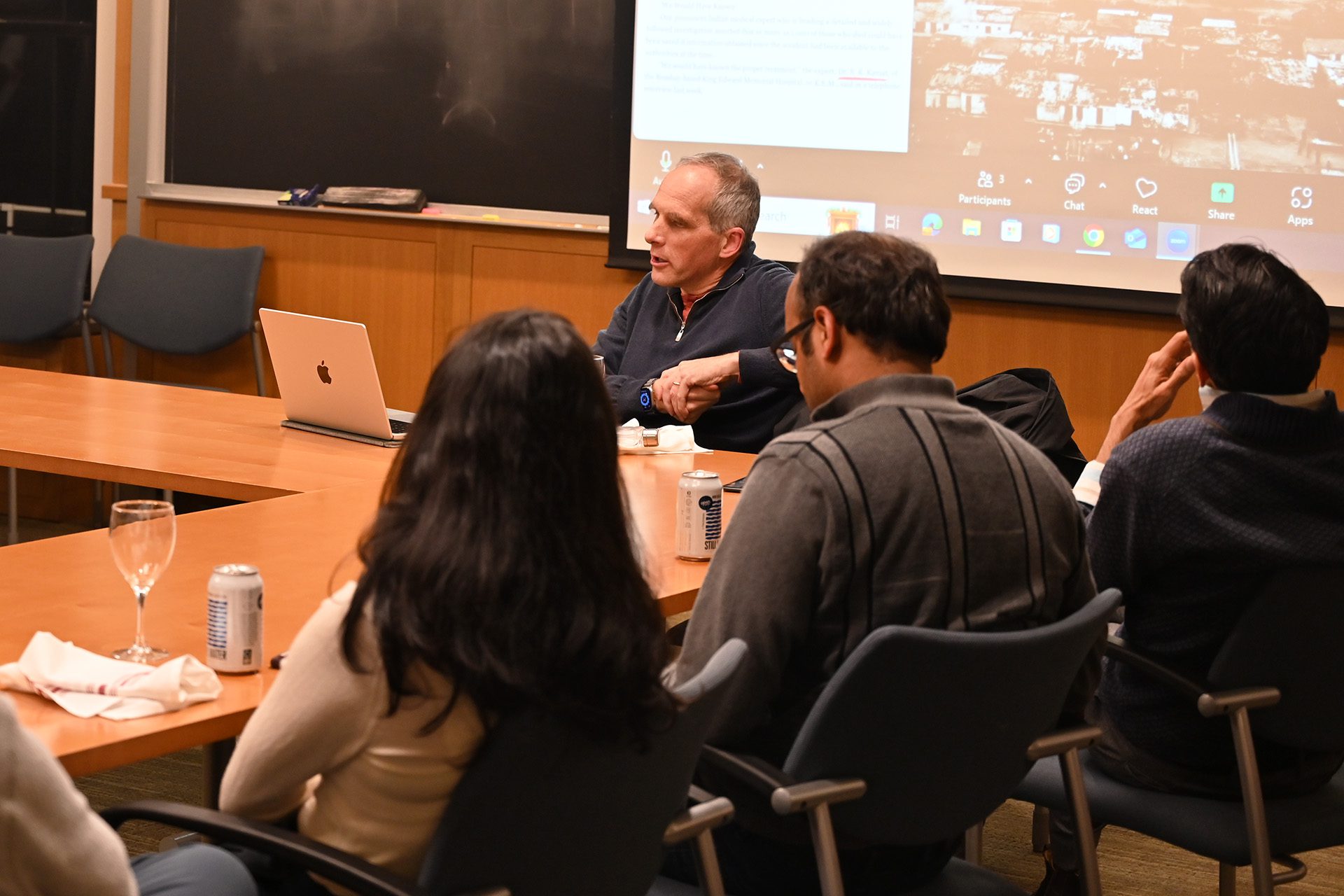
To express your interest in joining future dialogues, reach out to Kartikeya Bhatotia, Mittal Institute Climate Fellow: kartikeyabhatotia@fas.harvard.edu
